- The richest states in Nigeria are largely supported by agricultural and industrial facilities like other states yet, they have a high GDP and IGR that makes them stand out
- Lagos state ranks at No.1 on the list is able to sustain itself without intervention from the federal government and so are many of the richest states
- Despite the insecurity that Nigeria is facing, some states have still retained their spot on this list
Determining the richest state in Nigeria can be a quite difficult task. However, parameters like Gross Domestic Product (GDP) and Internal Growth Rate (IGR) reflect a state’s economic performance over a period of time.
Notably, Nigeria has the largest economy in West Africa largely supported by an abundance of natural resources, raw materials, precious metals, and fertile land. The country is made of 36 states with a population of over 200 million citizens. Nigeria stands at a GDP of $514.05 billion and ranks as the highest in Africa. Also, it has been projected to rank among the world’s top 10 economies by 2050.
While Nigeria is regarded as the Giant of Africa, It’s important to note that several states have contributed to its economic growth over the years. Although GDPs fluctuate, each of these states has thrived in its way to maintain its position.
10 Most Richest State In Nigeria Based On Their Gross Domestic Product (GDP)
The richest state in Nigeria is ranked by the Gross Domestic Products( GDP) since most states maintain the same position over a period of time. However, this isn’t the same for Internal Growth Rate (IGR). The instability of the Internal Growth Rate (IGR) doesn’t make it suitable for this ranking as taxes, PAYE, and revenue from ministries may relatively change. Nonetheless, the IGR parameters for 2021 have been presented in this article.
These top states are said to sufficiently fund the activities of the state without assignment from the federal government. In fact, the generated income from these states tops up the total economy of Nigeria.
1. Lagos State
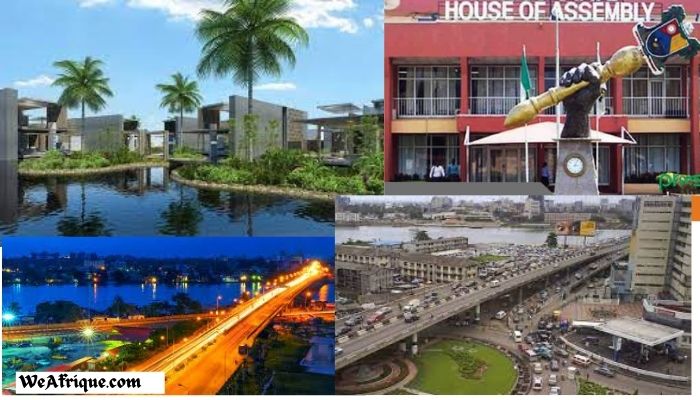
- Capital: Ikeja
- Date Created: 27 May 1967
- GDP: $33.67 Billion
- IGR: $267.23 Billion
- Landmass: 11.070km2
- Population : 49.552,940 Est
- Rich in: Bitumen and Clay
- Ethnic Group: Yoruba
- Geopolitical Zone: South West
Apart from being Nigeria’s center of excellence, Lagos state is undoubtedly one of the largest cities in Nigeria. It handles about 80% of Nigeria’s Imports. It also served as the country’s capital city from 1914 until 1991 before it was replaced with the Federal Capital Territory, Abuja but still retains its importance as the center of trade and commerce. Its economy is highly supported by culture, education, and transportation hub for Nigeria and Sub-Saharan Africa.
Today, Lagos occupies the first position as the richest state in Nigeria. The GDP of Lagos is as high as that of some countries like Sudan which has a GDP of $35.92 billion in 2021.
2. Rivers State
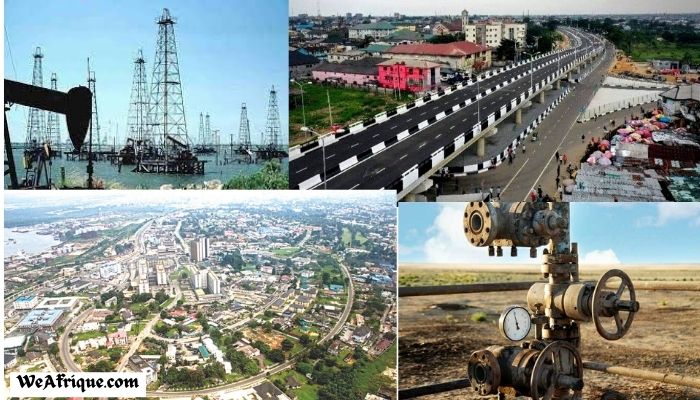
- Capital: Port Harcourt
- Date Created: 1967
- GDP: $21.07 Billion
- IGR: $57.32 Billion
- Landmass: 11. 077km2
- Population : 5,198,716
- Rich in: Crude Oil, Gas, and Uranium
- Ethnic Group: Ijaw and Isoko
- Geographical Zone: South-South
Prior to years of oil discovery, the known occupation in Rivers State is Farming and fishing. The state is largely covered with water which is mostly used for fishing and holds records for the second biggest commercial, agricultural and busiest seaport in Nigeria. It also provides healthy seafood like crab, oysters, shrimp, and fish.
In recent times, Rivers state is known as one of the major oil-producing centers in the country with over 100 petroleum industries. The state holds about 45% of crude oil, gas, and agricultural products which makes up about 12% of Nigeria’s Wealth. With respect to industrial Development and GDP, Rivers state is second to Lagos.
3. Delta State
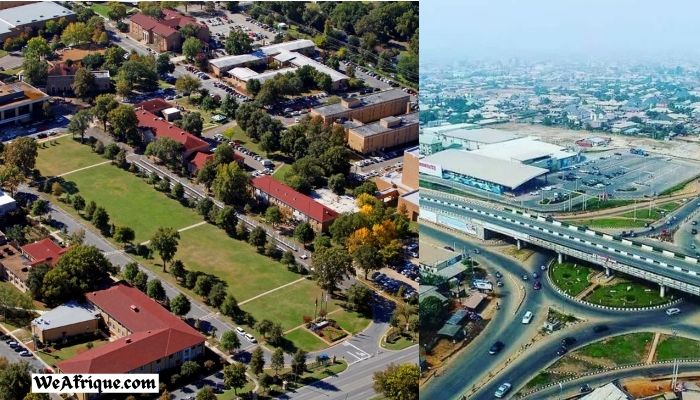
- Capital: Asaba
- Date Created: 27 August 1991
- GDP: $33.67 Billion
- IGR: $41.93 Billion
- Landmass: 18,050 km2 (6,970 sq mi)
- Population : 5,663,400 Est
- Rich in: Oil and Natural Gas
- Ethnic Group: Urhobo, Ijaw, Isoko, and Ukwani
- Geopolitical Zone: South-South
Delta state is also known as an oil-producing and agricultural state that drives its economy from oil production and exportation and agricultural inputs like rubber, timber, palm oil, and palm kernels. The locals of the state make a living from fishing and farming.
In terms of economic growth, Delta is one of the fast-rising. The state recorded an increase of over 40% since 2015. It is one of the most developed states in Nigeria and the third richest state after Rivers and Lagos state according to GDP.
4. Oyo State
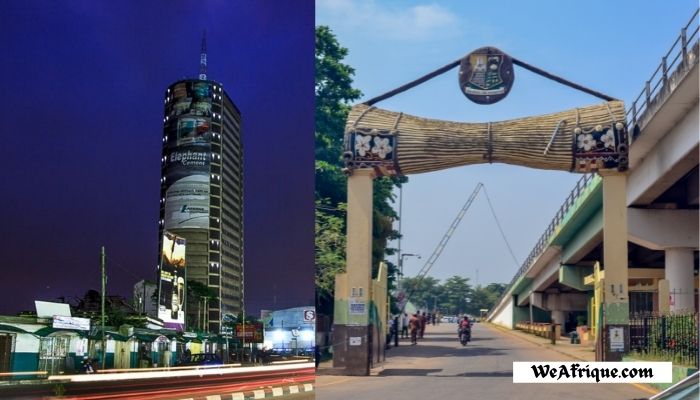
- Capital: Ibadan
- Date Created: 1976
- GDP: $16.12 Billion
- IGR: $25.19 Billion
- Landmass: 28,454km2
- Population:5,580,984 EST
- Rich in: Agricultural and Handicrafts
- Ethnic Group: Yoruba
- Geopolitical Zone: South-west
More than being a pacesetter state, it is popularly known as an agricultural society. Oyo state economy is based on producing and maintaining agricultural produce such as yams, corn (maize), Cocoa, cotton, kola nuts, tobacco, etc.
Formally known as the second-most populous city in Africa, it now sits as the fourth richest state in Nigeria.
Read Also: Alaafin Of Oyo- 7 Facts No One Told You About This Traditional Throne
5. Imo State

- Capital: Owerri
- Date Created: 3 February 1976
- GDP: $14.21 Billion
- IGR: $17.08 Billion
- Landmass: 5,530 km2
- Population : 4,927,563 Est
- Rich in: Crude Oil
- Ethnic Group: Igbo
- Geopolitical Zone: South East
Imo state is the third smallest area in Nigeria but it is ranked the 5th richest state in the country. The state is largely sustained by the agricultural production of palm oil, cocoa, and rubber. The Ada Palm Plantation Complex in Imo is said to be the biggest oil palm plantation in West Africa.
The eastern heartbeat also boasts of natural resources such as crude oil, lead, zinc, white clay, fine sand, limestone, and natural gas in commercial quantities.
6. Kano State
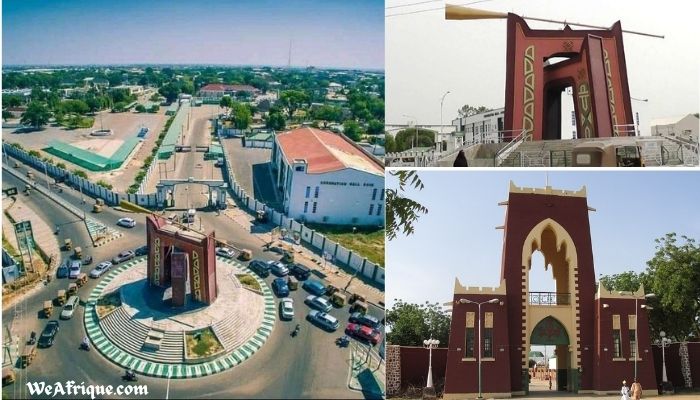
- Capital: Kano
- Date Created: 27 May 1967
- GDP: $12.39 Billion
- IGR: $15 Billion
- Landmass: 20,131km2
- Population : 11,058,300 Est
- Rich in: Cotton and Soybeans
- Ethnic Group: Hausa
- Geopolitical Zone: North West
Known as the center of commerce, Kano is the second most populous and largest industrial state in Nigeria after Lagos and the 6th richest state in Nigeria.
Kano’s economy takes off from the production and exportation of sustainable agricultural produce such as rice, wheat, groundnuts, and cotton. Moreso, handicrafts like leatherwork, weaving, pottery, and wood carving offer employment to over 40% of the population and are exported to countries like Europe and North America. Most industries found in the city engage in metal, textile, and furniture production.
7. Edo State

- Capital: Benin City
- Date Created: 27 August 1991
- GDP: $11.88 Billion
- IGR: $17.64 Billion
- Landmass: 17,802km2
- Population : 3,233,366 Est
- Rich in: Crude Oil and limestone
- Ethnic Group: Bini and Esan
- Geopolitical Zone: South-South
Edo state is notably the heartbeat of the nation. It is known for its rich tourist environment which contributes 10% to the state GDP. Other economic rising inputs are agricultural produce and solid minerals like marble, gold, granite, and limestone.
8. Akwa-Ibom State
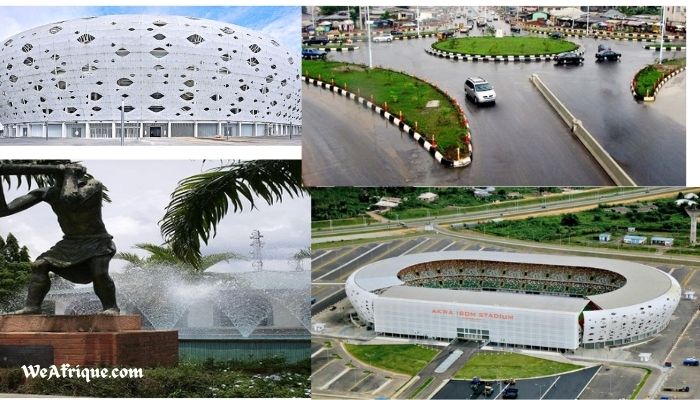
- Capital: Uyo
- Date Created: 23 September 1987
- GDP: $11.17 Billion
- IGR: $18.09 Billion
- Landmass: 7,081km2
- Population : 5450,758 Est
- Rich in: Crude Oil and limestone
- Ethnic Group: Ibibio, Annang, and Oron
- Geopolitical Zone: South-South
The land of promise is the eighth richest state in Nigeria and one of the third-generation states in Nigeria predominated by Christians. Attraction sites in the state include the Ibeno beach, the National Museum, Ibom Tropicana entertainment center, and the International stadium.
The state is one of the top three producers of crude oil and natural gas in the country. Akwa Ibom is also blessed with other natural resources such as limestone, gravel, gold, glass sand, coal, clay, and salt.
9. Ogun
- Capital: Abeokuta
- Date Created: 23 February 1976
- GDP: $10.47 Billion
- IGR: $54.82 Billion
- Landmass: 16,980km2
- Population : 3,751,140 Est
- Rich in: Limestone and Granite
- Ethnic Group: Yoruba
- Geopolitical Zone: South West
Ogun state was already backing out of the list of richest states in Nigeria after losing a whopping sum of about 30m in revenue. However, the state’s fortune started changing ever since the assumption of office by Governor Abiodun.
Ogun state is the ninth richest state in Nigeria and is considered one of the fastest-growing states in Nigeria. More to its economy are industries that are the major manufacturing hubs in Nigeria. Some factories in Ogun state include the Dangote cement factory, Lafarge cement factory, and others. The state is also regarded as the major producer of Ofada rice.
10. Kaduna
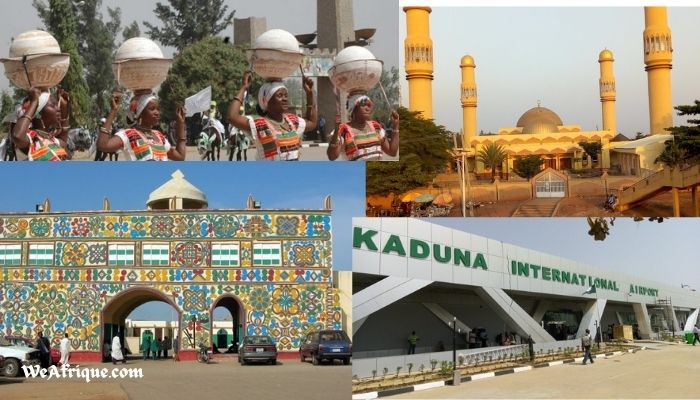
- Capital: Kaduna
- Date Created: 27 May 1967
- GDP: $10.33 Billion
- IGR: $26.42 Billion
- Landmass: b46,058km2
- Population : 6,113,503 Est
- Rich in: Cotton and Groundnut
- Ethnic Group: Hausa, Fulani, and Jaba
- Geopolitical Zone: North West
Kaduna state is the fourth largest and third most populous state in the country. A large measure of the state’s economy is from agriculture. It is the highest maize-producing state in Nigeria. Over 40% of the state’s population actively engages in cultivating cash and food crops like ginger, yam, groundnut, maize, beans, guinea, shea nuts, onions, corn, millet, rice, and cassava, etc.
The presence of the National Institute of Leather and Technology in the state has added to the advantage of having improved technology in the production of leather works. Other raw materials for the production of pencils, electrodes, generator brushes, and other sundry parts abound in the state. These natural minerals include serpentine, kyanite, gold, graphite, and amethyst.
As of this writing, Kaduna state like most parts of Nigeria is faced with unrest which has stiffened major growth in the state. Yet, it is one of the industrialized states in the country. There are over 80 commercial and manufacturing industries including Nigeria’s third petroleum refinery.
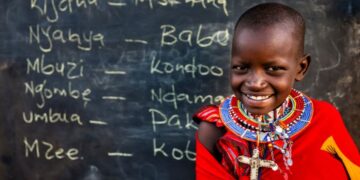









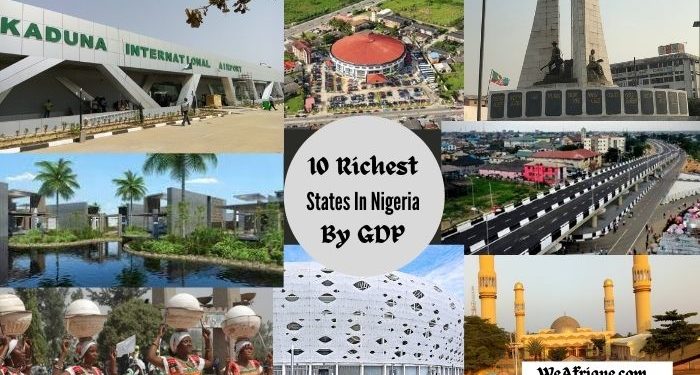










Discussion about this post